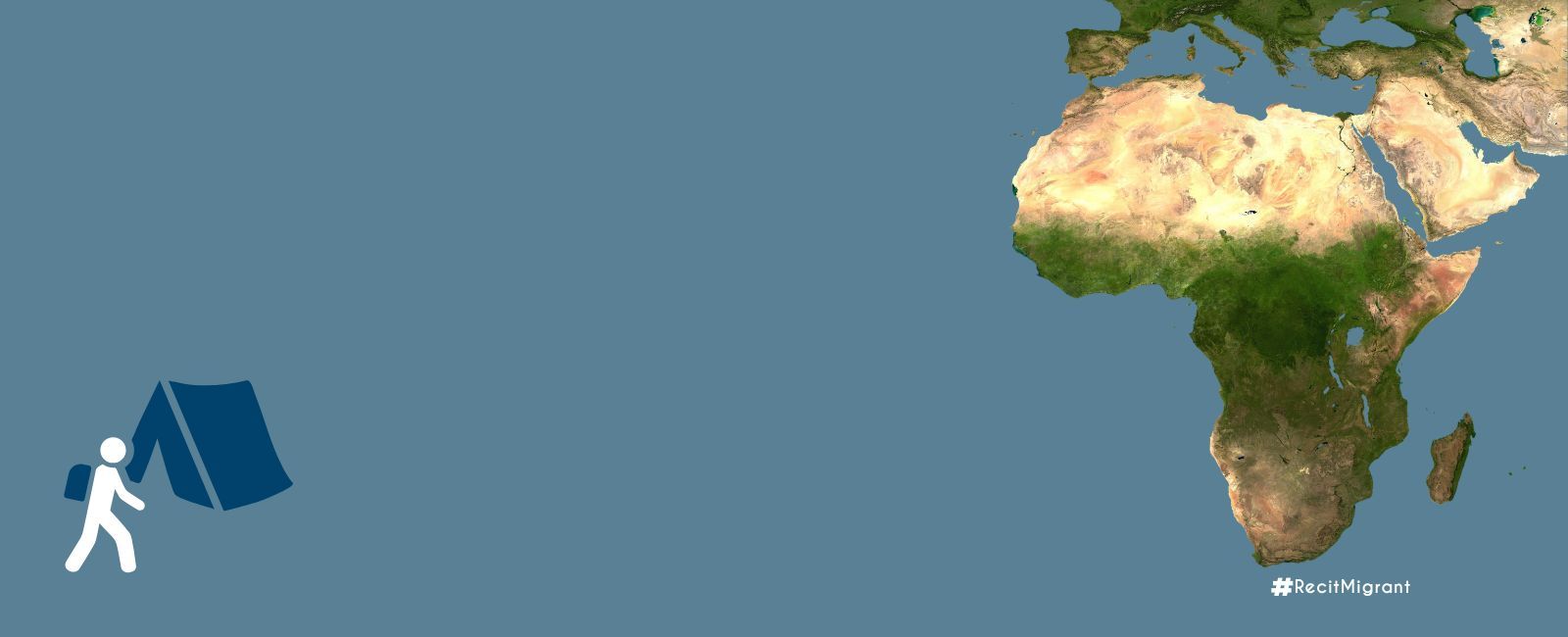

The cohesion of communities from different countries that find themselves in the same African territory is often rooted in long-standing secular ties. An example of this can be seen in the relationship between the peoples of Burkina Faso and Chad. Although they are not immediate neighbours, the two countries share close connections through their location within the Sahel region.
N’Doram* was 10 years old when he arrived in Burkina Faso with his older brother, who was working as a teacher there after completing his higher education. “I don’t remember exactly where we travelled, but I know that from N’Djamena, we went to Kousseri — a small town in Cameroon about ten kilometres from the Chadian border,” he recalls. “Then we passed through Maiduguri and Kano in Nigeria and Niger before finally arriving in Burkina Faso. In short, we travelled through Cameroon, Nigeria and Niger before reaching our destination.”
He recalls that, in the early 2000s, there were no terrorist threats, making travel less stressful. “However, there were highway bandits in Nigeria,” he adds.
N’Doram lived in Pô, a town in southern Burkina Faso, close to the border with Ghana. “I grew up at the foot of Nahouri Peak, one of the highest peaks in the country. That’s where I went to primary and secondary school. I was in Year 7 when my older brother was posted to Ouagadougou. I have been living in the capital ever since, where I finished secondary school and went on to university,” he sighs.
Like any other citizen in Burkina Faso, he leads an ordinary life. “I went to school like all the other children my age, and then I went to university. I frequent the same places and share the same experiences as everyone else. The atmosphere among friends, classmates, colleagues and fellow students is pleasant. We enjoy a drink together and eat our ‘benga‘ (beans) with gusto, and life goes on. Most of my friends are Burkinabé. I actually have very few Chadian friends because I grew up in Burkina Faso,” he says.
“People in Burkina Faso are warm and welcoming. Wherever you go, you sense this kindness and goodwill. Friends visit each other regularly. Racism and discrimination don’t really have a place here,” he adds.
At the same time, Chadians often come together for festive or social occasions, such as weddings, baptisms, funerals and times of illness. In addition, the ‘QG de l’Afrique Centrale’ (Headquarters of Central Africa), a venue created by a group of young Chadians, serves as a regular meeting place for the community. It is a restaurant offering both Chadian and Burkinabé dishes. Surrounded by numerous trees that give it the feel of a small forest, it is located next to the Bangré Wéogo protected forest in the centre of Ouagadougou.
An identity-based kinship tracing back to its origins
N’Doram’s experiences in Burkina Faso have left a lasting impression on him, particularly the close connection between his country of origin and his adopted homeland. Historically, the Gourmatché people and those from southwestern Burkina Faso are said to have originated in Chad. There are also strong cultural and culinary similarities. “So, when people learn that I am Chadian, they affectionately call me ‘grandfather’, which makes me very happy,” he says enthusiastically.
He recounts one memorable experience: “One day, when I was in Gaoua, a town in the southwest, a man approached me and started speaking to me in Gourmatchéma. I explained that I didn’t understand the language. He was incredulous, convinced that I must be Gourmatché and therefore speak the language. Surprised by my ignorance, he admitted that I looked very much like a native Gourmatché speaker. I smiled and told him that this was normal, as I am Chadian and therefore the ‘grandfather’ of the Gourmatché people. He found this remark very amusing, and so did I.”
N’Doram is particularly fond of African hospitality, a tradition widely practised throughout the Greater Sahel. He contrasts this with the attitudes he has observed in other parts of the world, which he disapproves of.
*pseudonym
Recently Published
Subscribe to our newsletter!
Quick Links


